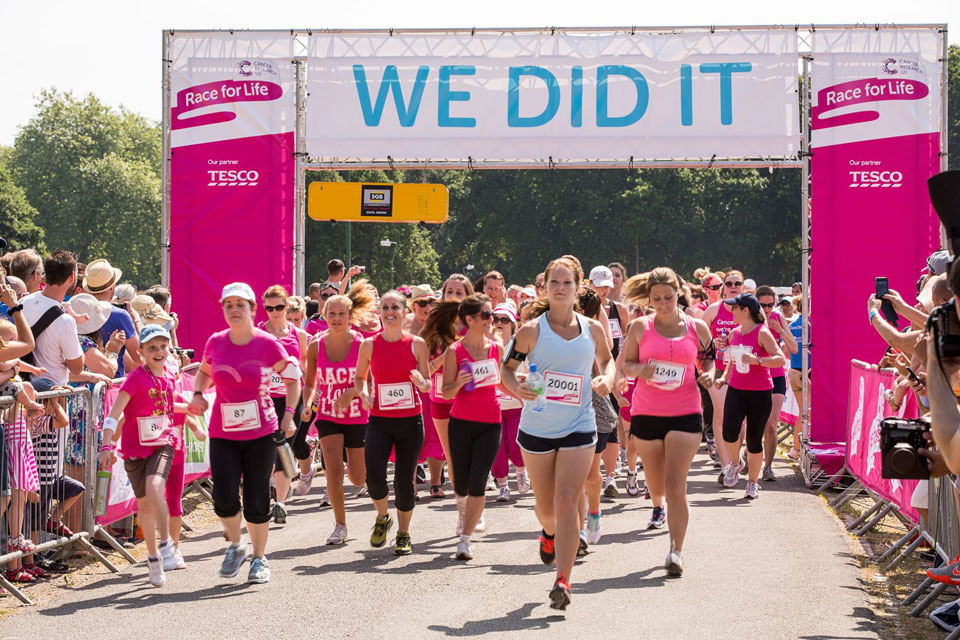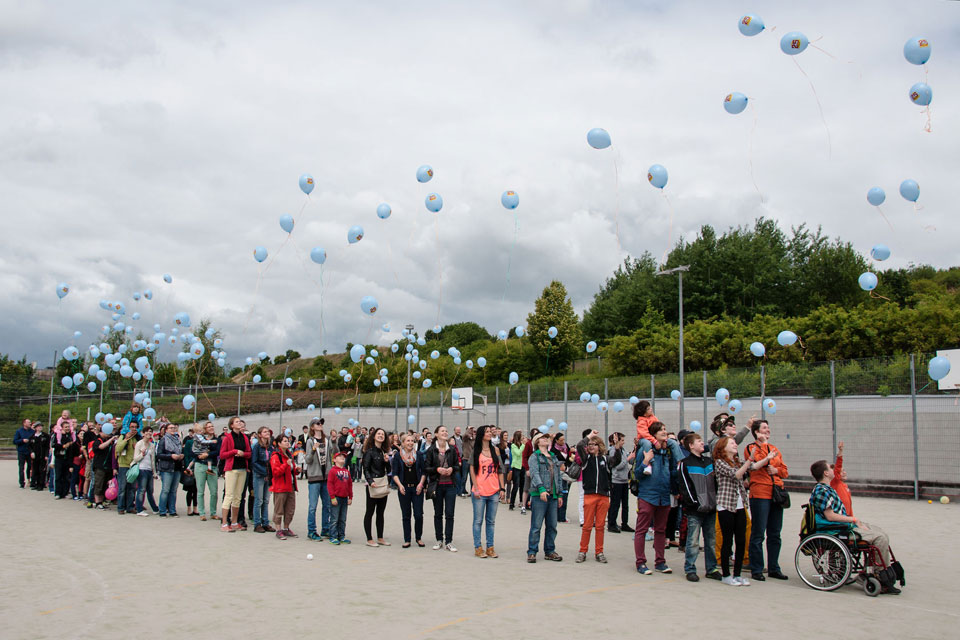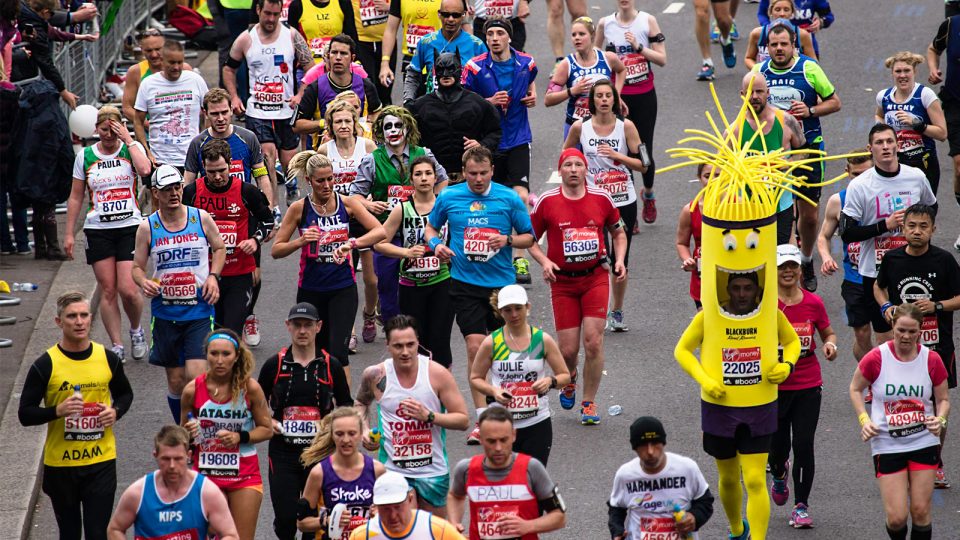When the topic of cancer is brought up during conversation, you can almost see a physiological and emotional change take place on the faces of participants. Cancer affects so many people in contemporary societies around the world, finding a runner whose life hasn’t been impacted by this disease is nearly impossible.
Unless you’re someone who has done a lot of research into the various forms of cancer that strike people, you may not know that it’s commonplace for people to believe that cancer strikes simply because the sufferer has bad genes or that bad luck led to their diagnosis.
In fact, research proves that cancer causes are split between genetics, environment and lifestyle, so neither luck nor genetics are 100-percent to blame.
Finding answers for cancer’s cause remains a priority for scientists across the globe and while this is being heatedly debated, of one thing you can be sure: Just because there is currently no cure for cancer, that doesn’t mean you can’t fight it with every fibre of your being!
What is Cancer?

If you recall learning about the DNA helix in school, you know that DNA provides the body’s building blocks, a series of genes and alleles that determine how we look, behave and act. If the body is assaulted by external factors, cells react dramatically by changing and replicating in abnormal ways.
They no longer function as they’re supposed to. Instead, the body’s immune system is suppressed and every opportunistic bacterial or viral threat encourages the replication of cancer cells rather than healthy ones.
There are too many DNA-altering triggers to list here, but scientists are convinced that UV rays, bad lifestyle choices, tobacco and air pollutants all act as catalysts, morphing good DNA into badly-behaving cells that attack vulnerable areas of the body.
While many believe that cancer “strikes” in short order, in fact DNA cell damage can occur long before cancer presents. Finally, genetic makeup is the least-likely reason one gets cancer, but combined with bad lifestyle choices and environmental factors, one’s risk for getting cancer increases exponentially.
How Do You Know if Biology is Your Destiny?
Take a look at both sides of your family. If ancestors suffered from breast, ovarian, prostate or other types of cancers that seem to recur generation after generation, your chances of acquiring cancer in that area of your body increase, so knowing your genetic history is extremely important if you’re worrying about whether or not you are at risk.
Tests to ferret out genes that can trigger cancer in a body are already available for certain types of cancer so one can take prophylactic measures to reduce their chances of carrying on the family curse.
Of particular note are tests women can take to detect the propensity for several types of cancers so they can surgically remove much of the threat. A highly-publicized example or such a situation is Angelina Jolie’s story.
The actress and human rights advocate, whose mother and grandmother were fairly young when they succumbed to gynecological cancers, learned through a test that her risk of following in both women’s footsteps was extremely high. Based on those results, she opted for radical surgeries to improve her long-term survival chances.
Can You Prevent Cancer by Running?

In a manner of speaking, you already help your body fight off cancer every time you put on your running shoes and push yourself to go the distance. During your run you reduce stress, oxygenate your blood, therapeutically impact your skeletal system, fight off toxins, tone your muscles and impact every cell in your body as a result of being active.
By paying close attention to your lifestyle — what you eat, how much you sleep, properly coping with stress and practicing moderation — you take every recommended step suggested by cancer authorities.
More than 4 in 10 cancer diagnoses can be traced to specific unhealthy habits like smoking, obesity, alcohol, bad diet, sedentary lifestyle and ignoring infections. How much can these preventative measures reduce your chances of cancer?
In a 2008 UK study, people who made healthy lifestyle choices by engaging in healthy eating and physical activity lived 14 years longer than those who didn’t take care of themselves, no matter what their genes foretold.
Are Singaporeans at Greater Risk?
In general, doctors find that breast, lung, colorectal, liver, stomach, pancreas, men’s and women’s reproductive systems, kidney and leukemia (blood-borne cancer) were the most prevalent types of cancer being diagnosed by doctors among Singapore’s men and women between 2010 and 2014, according to The National Cancer Center Singapore website.
The NCCS offers advice, assistance and a unique tracking system that gathers cancer statistics by ethnic origin, so Singapore runners can learn more about specific risk factors based on their heritage simply by visiting here.
Can the type of cancer for which you’re most at risk be determined by your Chinese, Malay or Indian heritage? It can, because lineage, dietary and lifestyle patterns are distinct among these groups. By knowing which types of cancer pose the highest risk to you, you can seek medical attention earlier, thereby enhancing your chances of early detection and treatment.
But Can Running Really Cure Cancer?

Articles in publications like “Men’s Health” make no claims of cures, but they do state that “exercise may help you fend off cancer.” Dr. Mercola’s research concludes that, “regular exercise reduces the risk of developing liver cancer”.
Notice the absence of the word “cures” in each statement. If you run into claims that running cures cancer, look for scholarly research by reputable institutions to back up the claim, because lofty promises of cancer cures are harmful, misleading and inaccurate.
How inaccurate? This UK website posts excellent examples of hyperbole and inaccuracy as related to cancer cure claims.
Bottom line is that experts in the field are juggling semantics. Because nobody can establish a direct link that equivocally states that running cures cancer, for the moment, the closest one can get to that declaration is that running impacts the body in ways that can keep the immune system healthy so cells can’t mutate.
Should You Run if You Have Cancer?
According to the National Comprehensive Cancer Network, one of the best things you can do for yourself as you recover from cancer treatments is to engage in healthy running.
Running can help reduce fatigue that’s common when the body’s suppressed immune system is fighting to return to normal and it can also help with treatments you receive (e.g., chemotherapy and radiation) that are known to tire patients. But, that doesn’t mean you should challenge yourself to a marathon early in your recovery!
Regular, moderate running that increases in time and distance slowly is the best way to use it as a recovery tool because regular runs affect your mood, flexibility, muscle and joint strength, oxygenates your blood and supplements your recovery plan.
Running can help control weight gain, often a side effect of anti-cancer drugs, and help offset lymphedema, a condition that causes the arms to swell as a result of having lymph nodes surgically removed. Oncologists advise patients to slowly build up to 30 minutes of activity, five days a week. If you can find running buddies who are also in stages of recovery, you’ll hit the jackpot!
Until There is a Cure for Cancer…

Keeping apprised of the latest information on cancer cure progress is the gift you give yourself — particularly if you have unearthed genetic factors that could put you at risk for cancer types profiled in this article.
Knowing that every time you run, you push cancer away metaphorically and physically keeps you focused on good health, and this alone can give you the boost you need to get up and out next time you think, “I’m not really in the mood to run right now.”
If your brain can’t get you off that sofa, maybe you should make yourself a little sign on your computer and post it in a conspicuous place, so every time you think you’re too tired, not in the mood or the weather’s not perfect for your standard jog, you read: “Every time I run, I battle against cancer!”
While you’re at it, make extra signs for loved ones who also hope and pray to see a cure for cancer very soon, too.
Have you been tempted to have your DNA analyzed or thought about taking cancer diagnostic tests that could reveal your predisposition for the disease? You can start your personal investigation by tapping this resource.




